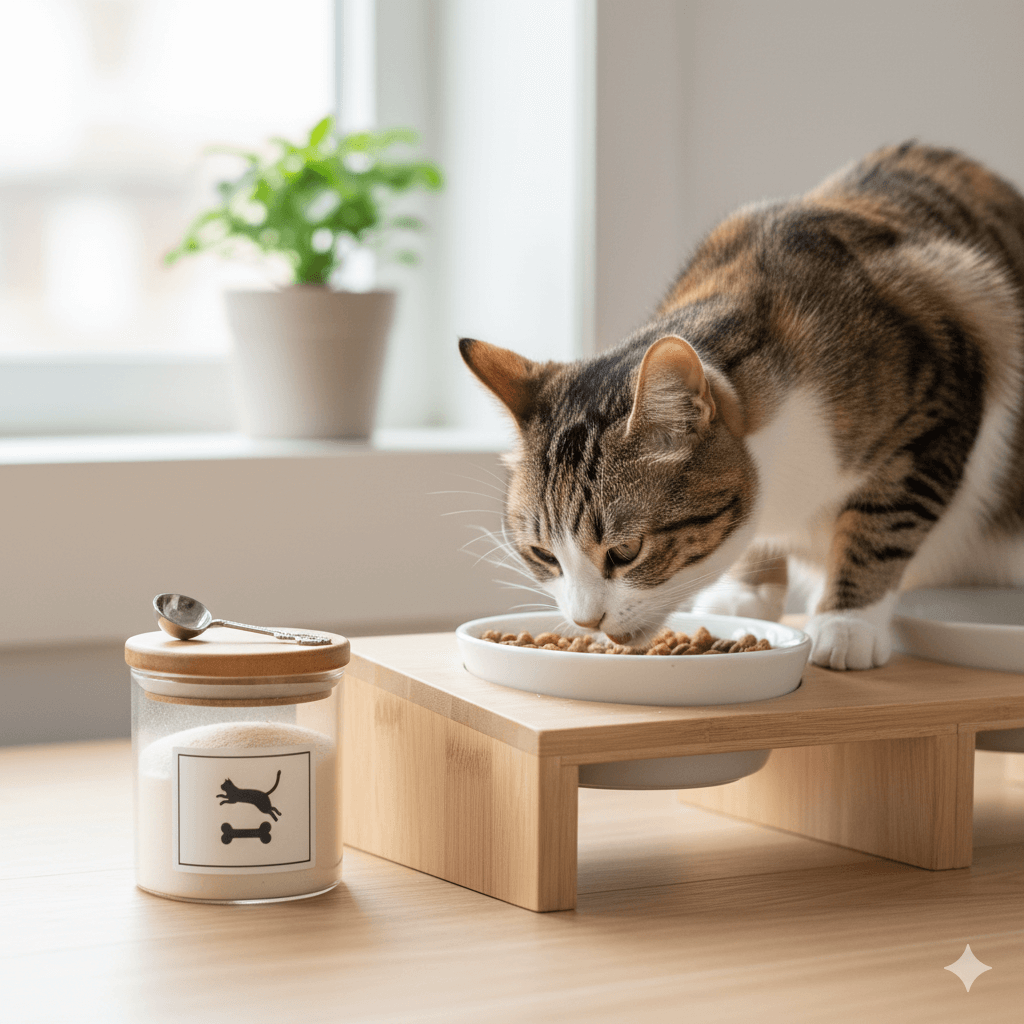The Majestic Tosa Inu Dog: A Glimpse into Japan’s Noble Breed
The Tosa Inu, often referred to as the Tosa Ken or Japanese Mastiff, is a breed that embodies strength, loyalty, and grace. Originating from Japan, this majestic dog has captured the hearts of dog enthusiasts worldwide with its imposing stature and gentle demeanor. Whether you’re a seasoned dog owner or someone considering adding a four-legged companion to your family, the Tosa Inu offers a unique blend of characteristics that make it stand out among other breeds. In this blog post, we’ll delve into the fascinating world of the Tosa Inu, exploring its history, temperament, care requirements, and much more. Prepare to be amazed by this remarkable breed!
Key Characteristics of the Tosa Inu
The Tosa Inu is known for its distinctive traits that set it apart from other dog breeds. Below, we’ve compiled a list of its most notable characteristics to give you a better understanding of what makes this breed so special.
Size and Build :
The Tosa Inu is a large and muscular breed, often weighing between 100 and 200 pounds. Its robust frame exudes power and athleticism.Coat and Colors :
This breed sports a short, dense coat that is easy to maintain. Common colors include red, fawn, brindle, and black.Lifespan :
On average, the Tosa Inu lives between 10 and 12 years, making it a long-term commitment for any owner.Temperament :
Despite its intimidating size, the Tosa Inu is known for its calm and gentle nature, especially with family members.Trainability :
This breed is intelligent but requires consistent training and socialization from an early age to thrive.
In summary, the Tosa Inu’s combination of physical prowess and a loving personality makes it a truly remarkable companion for the right owner.
Caring for Your Tosa Inu: Essential Tips
Owning a Tosa Inu comes with specific responsibilities to ensure its health and happiness. Here are some key aspects of caring for this magnificent breed:
Exercise Needs :
The Tosa Inu requires daily exercise to stay physically and mentally fit. Long walks and playtime in a secure area are ideal.Dietary Requirements :
A balanced diet rich in protein and nutrients is crucial for maintaining its muscle mass and overall health.Grooming Routine :
Regular brushing helps keep its coat shiny and reduces shedding. Occasional baths are sufficient due to its low-maintenance coat.Health Monitoring :
This breed is prone to certain conditions such as hip dysplasia and bloat, so regular vet check-ups are essential.Socialization :
Early and ongoing socialization is vital to ensure the Tosa Inu remains well-behaved around people and other animals.
By prioritizing these care essentials, you can ensure your Tosa Inu leads a happy and fulfilling life.
Check this guide 👉Alabai Dog Care: 7 Powerful Tips to Master Like a Pro
Check this guide 👉The Majestic Tibetan Mastiff Dog: Best 7 Expert Tips!
Check this guide 👉The Majestic Presa Canario: Best 7 Expert Tips!

Aspect | Details |
|---|---|
Average Weight | 100–200 pounds |
Coat Type | Short, dense, and easy to maintain |
Common Health Issues | Hip dysplasia, bloat, joint problems |
Exercise Requirements | Daily walks and playtime in secure areas |
Lifespan | 10–12 years |
Training Your Tosa Inu: Best Practices
Training a Tosa Inu requires patience, consistency, and a clear understanding of its needs. Here are some tips to help you navigate the training process effectively:
Start Early :
Begin training and socialization during puppyhood to establish good habits from the start.Use Positive Reinforcement :
Reward-based training methods work best with this intelligent and sensitive breed.Focus on Obedience :
Teaching basic commands like “sit,” “stay,” and “come” is essential for managing its size and strength.Address Behavioral Issues Promptly :
Correct undesirable behaviors immediately to prevent them from becoming ingrained habits.Involve Professional Help if Needed :
Consider enrolling your Tosa Inu in obedience classes or hiring a trainer for expert guidance.
With dedication and the right approach, you can mold your Tosa Inu into a well-behaved and loyal companion.
Living with a Tosa Inu: Pros and Cons
While the Tosa Inu is an extraordinary breed, it’s important to weigh the pros and cons before bringing one into your home. Below is a breakdown of what to expect:
Pros :
The Tosa Inu is fiercely loyal and forms strong bonds with its family.Cons :
Its large size may not be suitable for small living spaces like apartments.Pros :
This breed is generally calm and quiet indoors, making it a great indoor companion.Cons :
The Tosa Inu requires experienced handling due to its strength and protective instincts.Pros :
It is highly trainable and eager to please when given proper guidance.
Understanding these factors will help you determine if the Tosa Inu is the right fit for your lifestyle.
Training Challenges with the Tosa Inu
Training a Tosa Inu can present unique challenges due to its size, strength, and protective nature. Understanding these potential hurdles will help you prepare for a successful training journey.
Stubborn Streaks :
The Tosa Inu can sometimes exhibit stubborn behavior, requiring extra patience during training sessions.Dominance Issues :
This breed may try to assert dominance if it senses a lack of leadership from its owner.Sensitivity to Harsh Corrections :
The Tosa Inu responds poorly to harsh or punitive training methods, which can damage its trust.Short Attention Span :
Training sessions should be kept short and engaging to maintain the dog’s focus.Consistency is Key :
Inconsistent rules or commands can confuse the Tosa Inu and hinder progress.
By addressing these challenges with understanding and persistence, you can build a strong bond and ensure your Tosa Inu becomes a well-mannered companion.
Socializing Your Tosa Inu
Socialization is a critical aspect of raising a well-adjusted Tosa Inu. Without proper exposure to different environments, people, and animals, this breed can become overly protective or anxious.
Start Early :
Begin socializing your Tosa Inu as a puppy to help it adapt to various situations confidently.Introduce New People Gradually :
Allow your dog to meet new people in a controlled and positive manner to prevent fear-based reactions.Expose to Different Environments :
Take your Tosa Inu to parks, busy streets, and other settings to help it become comfortable in diverse surroundings.Interact with Other Dogs Carefully :
Supervised playdates with friendly, well-behaved dogs can improve its social skills.Monitor Body Language :
Pay attention to signs of stress or discomfort during socialization and adjust accordingly.
With consistent and positive socialization efforts, your Tosa Inu will grow into a confident and well-rounded dog.
Health Considerations for the Tosa Inu
The Tosa Inu is generally a robust breed, but like all dogs, it is prone to certain health issues that owners should be aware of. Proactive care can help mitigate these risks and ensure a long, healthy life for your pet.
Hip Dysplasia :
This common condition in large breeds can be managed with proper diet, exercise, and veterinary care.Bloat (Gastric Torsion) :
Feeding smaller meals and avoiding vigorous activity after eating can reduce the risk of bloat.Joint Problems :
Regular exercise and joint supplements can support the Tosa Inu’s mobility as it ages.Skin Allergies :
Some Tosa Inus may develop skin sensitivities, requiring hypoallergenic grooming products.Heart Conditions :
Routine vet check-ups can help detect and manage potential heart issues early.
By staying informed and attentive to your Tosa Inu’s health needs, you can provide the best possible care and enjoy many happy years together.
Frequently Asked Questions About the Tosa Inu
Is the Tosa Inu a good family dog?
Yes, the Tosa Inu can be an excellent family dog when properly trained and socialized.
How much exercise does a Tosa Inu need?
This breed requires at least one hour of exercise daily to stay healthy and happy.
Are Tosa Inus aggressive?
No, they are not inherently aggressive but can become protective if not socialized properly.
What is the Tosa Inu’s lifespan?
The average lifespan of a Tosa Inu is 10 to 12 years.
Do Tosa Inus shed a lot?
They shed moderately, but regular brushing can help manage loose hair.
Why the Tosa Inu Could Be Your Perfect Companion
The Tosa Inu is more than just a dog; it’s a loyal and loving member of the family. With its impressive size, gentle temperament, and unwavering devotion, this breed has much to offer those willing to invest time and effort into its care. While it may not be the easiest breed to own, the rewards of sharing your life with a Tosa Inu are immeasurable. If you’re ready for the responsibility and commitment that come with this noble breed, the Tosa Inu could be the perfect addition to your household. Embrace the journey of owning this remarkable dog, and you’ll discover a bond unlike any other.
Understanding Bone Supplement for Cats: Best 7 Expert Tips! – Safe, vet-approved guidance for strong feline bones & balanced nutrition.
Bone Supplement for Dogs: Best 7 Expert Tips! – Expert guide to calcium, collagen & bone health for every life stage.
Understanding Can Cats Get Sunburn: Best 7 Expert Tips! – Protect your feline from UV damage with vet-backed prevention strategies.
How to Train a Seizure Alert Dog: Best 7 Expert Tips! – Learn expert-backed steps to nurture natural instincts into reliable, life-saving seizure alerts.




